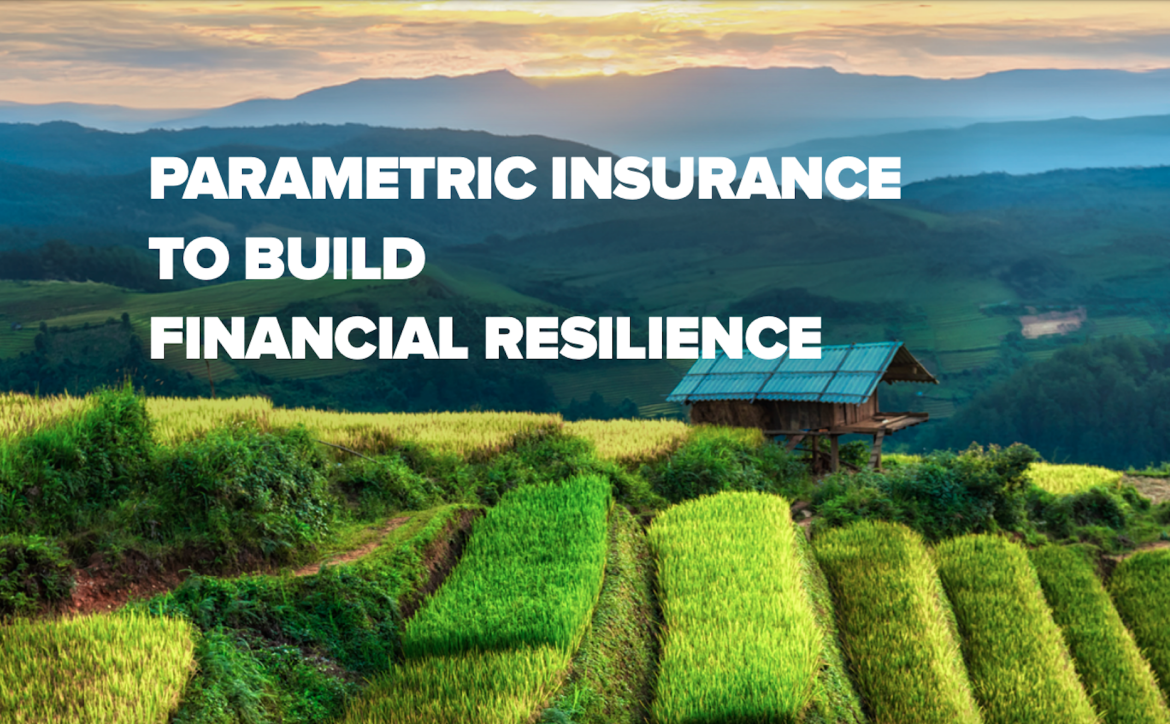Building Financial Resilience through Parametric Insurance

On October 4th, 2024, the United Nations Development Programme (UNDP) and Generali Global Corporate & Commercial launched their collaborative report, Parametric Insurance to Build Financial Resilience. The report highlights the potential of parametric insurance to provide governments, businesses, and communities with the financial tools necessary to navigate an increasingly unpredictable climate, marked by severe natural hazards such as droughts, extreme heat, and tropical storms. With an alarming US$1.8 trillion protection gap, showing the difference between insured and uninsured losses, the report explains how this innovative insurance model can significantly contribute to addressing the complex challenges brought about by climate change.
Broadcasting live from Generali's headquarters in Milan, speakers and panelists discussed the transformative potential of parametric insurance. Simone Borad, Generali Group Chief Communications and Public Affairs Officer, reaffirmed the company’s commitment to resilience in vulnerable communities. "It is our duty as responsible insurers and global citizens to act for the common good," she stated, highlighting the role of parametric insurance in closing the protection gap and promoting economic sustainability.
Key points raised by other speakers included the urgent need for long-term strategies to enhance disaster resilience, with a focus on improving disaster coverage through public-private insurance programs. The limitations of traditional insurance models were noted, particularly their tendency to leave communities vulnerable due to delayed responses. The potential of parametric insurance was emphasized as a quicker response mechanism that provides immediate payouts based on predetermined triggers, such as rainfall levels or wind speeds.
Miguel Solana, UNDP’s Global Technical Lead for the Insurance and Risk Finance Facility, echoed these sentiments. He remarked, “This is a call to action to deepen the collaboration between the insurance industry and the businesses, communities, and governments.” His emphasis on partnerships highlighted the insurance industry's vital role in promoting resilience and protecting developmental progress worldwide.
Following the speaker's session, a panel moderated by Ekhosuehi Iyahen, Secretary General of the Insurance Development Forum, explored innovative applications of parametric insurance. Panelists included Alessandro Bonazzi, Generali Global Corporate & Commercial Head of Technical Excellence; Lauren Carter, UNDP Insurance and Risk Finance Facility Head of External Engagement; Sarah Conway, WTW Disaster Risk Finance Head of Ecosystem Resilience; and Arijana Antunovic, Global Parametrics Business Developer.
The panelists collectively emphasized the urgent need for innovative insurance solutions to effectively address climate risks and highlighted the role of parametric insurance in enhancing resilience, particularly for vulnerable communities facing the brunt of climate change. Their discussions illustrated how collaborative efforts among the insurance sector, development organizations, and government entities can create robust frameworks that protect at-risk populations while promoting sustainable development.
Insights from the case studies shared included a parametric insurance product tailored for women in Gujarat, India, which delivers rapid financial assistance during extreme heat events. This model recently benefited 2,000 women in Ahmedabad when temperatures reached 46°C, showcasing how such initiatives empower communities while providing essential support. Another case study focused on Vietnam's ambitious renewable energy transition, specifically wind power, and highlighted how parametric insurance can mitigate financial risks during low production periods, thus encouraging investment in the sector.
Lauren Carter, Head of External Engagement for UNDP's Insurance and Risk Finance Facility, emphasized the crucial role that development organizations play in establishing regulatory frameworks to facilitate parametric insurance. She noted the need for collaboration between public and private sectors for effective implementation, describing how UNDP acts as a bridge between governments and insurers, helping develop supportive market policies and ensuring efficient payout management processes to direct resources swiftly during crises.
The panel discussion highlighted that collaboration between the insurance sector and development organizations is vital for creating frameworks that effectively protect vulnerable communities, emphasizing the role of partnerships in enhancing parametric insurance to mitigate climate risks and build resilience.
Aligned with this vision, GIIF’s recent milestones demonstrate its leading role in promoting agri-insurance and parametric (index) insurance solutions as essential components for sustainable development in vulnerable countries facing climate risks. Having exceeded initial goals, GIIF has issued over 14 million agricultural insurance policies, reaching nearly 70 million beneficiaries globally. These interventions span Africa and Asia, catalyzing progress in the insurance industry by actively engaging key stakeholders. GIIF remains dedicated to mobilizing resources and expertise to further innovative insurance solutions that protect smallholder farmers and vulnerable populations, ultimately contributing to a resilient and inclusive future amid the growing impacts of climate change.
To explore these insights further, watch the full event video and download the report for comprehensive perspectives and case studies on how parametric insurance can drive resilience and close the protection gap in vulnerable communities.
